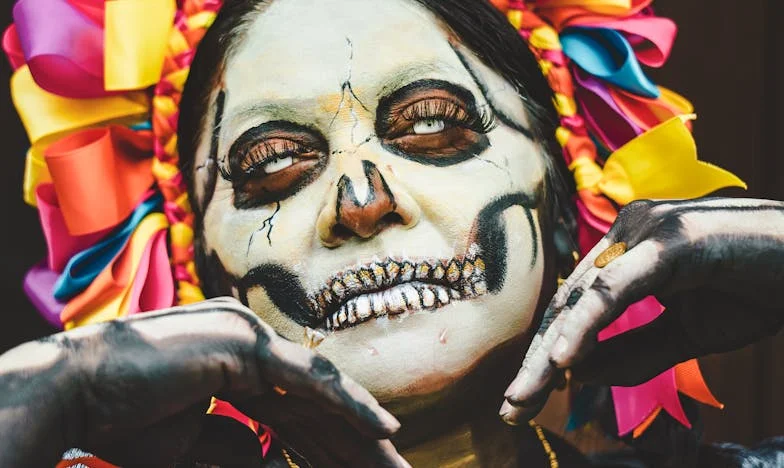Shattered Glass and Unspoken Bonds: The Day I Broke the Rules for a Life
“Are you out of your mind?” The man’s voice was sharp, slicing through the thick, suffocating air of the Kroger parking lot. I could feel the heat radiating off the blacktop, shimmering like a warning. My hands, still trembling from the adrenaline, clutched the small hammer I kept in my glove compartment—something my dad insisted on when I first started driving. “For emergencies,” he’d said. I never thought today would be that day.
His German Shepherd was already panting, tongue lolling, eyes glassy in the back seat of his locked, navy blue Ford Escape. I was on my way home from a long, sticky day at the office, just ducking into the store for a rotisserie chicken and some salad. But as I passed the rows of sun-baked cars, my gaze caught on the rise and fall of the dog’s chest, too shallow, too fast.
I hesitated, my mind racing. Maybe he’d be back in a second? Maybe I was overreacting? But the thermometer on my phone read 97 degrees, and the inside of that car had to be at least twenty degrees hotter. I could hear my mother’s voice in my head: “Don’t get involved, Lucy. You never know what people are capable of.” But I remembered what it felt like to lose our old dog, Molly, in a way that still ached after all these years.
So I shattered the window.
Glass rained down, sparkling across the seat. The dog flinched but didn’t bark. I yanked the door open, my heart pounding. His tongue lolled, and I fumbled for the water bottle in my purse, pouring a shaky stream into my cupped hand. He lapped it up, desperate and grateful, his eyes brightening just a bit.
That’s when the yelling started.
“What the hell do you think you’re doing?” A man in his late forties, sweat staining his polo shirt, strode toward me, grocery bag swinging. “That’s my car! That’s my dog!”
People started gathering. Phones came out—recording, judging, whispering. I felt heat rising in my cheeks, a mix of fear and righteous indignation. “Your dog was dying in there!” I shot back, voice shaking. “You can’t leave a dog in a car, not in this heat.”
He glared at me, face red as the taillights. “Mind your own damn business. You’re paying for that window.”
I opened my mouth to argue, but then the sirens wailed—someone must have called the cops. The blue and red lights painted the scene in a surreal glow. An officer approached, calm but stern, asking questions, taking statements. The crowd pressed in, torn between sympathy and skepticism, some nodding at me, others muttering about busybodies and lawsuits.
“Ma’am, did you break this window?” the officer asked.
“Yes,” I said, my voice steadier than I felt. “The dog—he was in distress.”
He nodded, jotting notes. “We’re going to need to sort this out.”
The man, now clearly agitated, insisted I was overreacting, that he’d only been inside for five minutes. “Five minutes is all it takes on a day like this,” the officer replied quietly, glancing at the panting dog. “We see it every summer.”
My phone buzzed incessantly in my pocket—calls from my sister, texts from my mom: “Where are you?” “Are you okay?” I ignored them, feeling exposed and alone in the center of this suburban drama. The store manager came out, wringing his hands, worried about liability and the growing crowd.
Eventually, the officer let me go with a warning, but not before the man spat at my feet: “You’ll pay for this.”
I drove home, hands shaking, mind replaying the scene. My own family was waiting, dinner cold, faces drawn with concern. My mother clicked her tongue, worry etched in every line of her face. “Lucy, you could’ve gotten hurt. Or sued. People are crazy these days.”
My father, usually stoic, squeezed my shoulder. “You did the right thing. Doesn’t matter if it’s not easy.”
But that night, lying in bed, I couldn’t sleep. The image of the dog’s desperate eyes haunted me, but so did the man’s anger, the crowd’s judgment, the uncertain consequences hanging over my head. Was I a hero, or just another meddling stranger? The next morning, the story was all over the neighborhood Facebook group. The comments ranged from “Brave!” to “Irresponsible!” to “Mind your own business!” The debate raged—animal lovers, libertarians, parents, and cynics clashing over what it meant to do the right thing in a world where everyone’s watching, and nobody agrees.
A week later, I got a letter from the man’s lawyer. He wanted me to pay for the window and threatened to sue for damages. My stomach dropped. I didn’t have that kind of money. My sister, a paralegal, reassured me: “You saved a life. There are Good Samaritan laws. You’ll be okay.”
But the anxiety gnawed at me. I replayed every moment, doubted every instinct. Had I acted too quickly? Was it worth it?
Then, a knock at my door. It was the officer from that day, off duty, plainclothes. He handed me a thank you card and a Polaroid—a picture of the dog, tail wagging, eyes bright. “The vet said you saved his life. Some people won’t thank you, but I will.”
I clung to that card, to the knowledge that sometimes doing what’s right looks a lot like standing alone.
Now, I find myself wondering: Did I do the right thing, even if it upended everything? How far would you go for someone—or something—that can’t speak for itself, even when the world tells you to look away?
